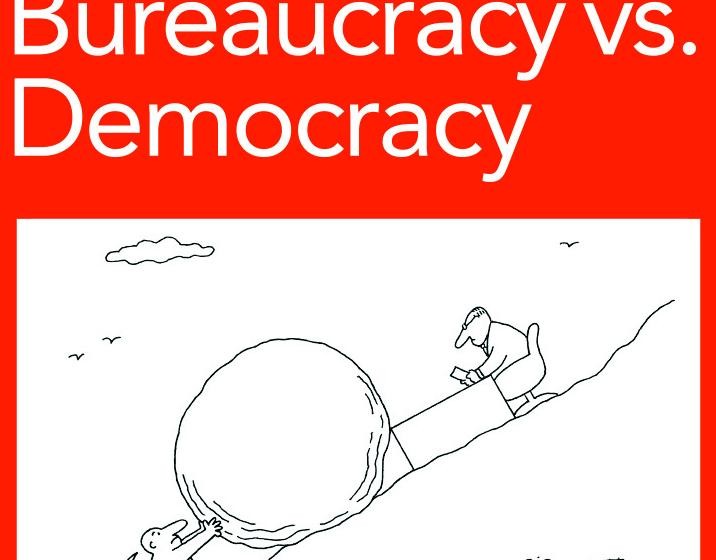Jackson Vs The Bureaucracy

The intricacies of bureaucratic systems have long fascinated scholars and the general public alike, particularly when they intersect with charismatic figures. One such figure is Andrew Jackson, the seventh President of the United States, known for his strong personality and policies that aimed to expand democracy and limit the power of the federal government. Jackson’s presidency was marked by a series of confrontations with the bureaucracy of his time, reflecting broader themes of power, democracy, and governance that remain relevant today.
At the heart of Jackson’s conflict with the bureaucracy was his belief in the principles of democracy and his disdain for what he saw as elitism and corruption within the government and its institutions. He championed the cause of the common man, promising to root out corruption and inefficiency from the government. This stance inevitably brought him into conflict with the existing bureaucratic structures, which he perceived as obstacles to democratic reform.
One of the most notable examples of Jackson’s confrontation with the bureaucracy was his veto of the re-charter of the Second Bank of the United States in 1832. The Bank, which was a central bank that regulated the monetary system, was seen by Jackson as a symbol of elitism and a concentration of power that threatened the democratic principles he believed in. The Bank’s re-charter was supported by many in Congress and within the bureaucracy, who argued it was necessary for the stability of the economy. However, Jackson’s veto, based on his belief that the Bank favored the wealthy at the expense of the common man, marked a significant assertion of presidential power against the bureaucracy and the financial interests it represented.
Another significant aspect of Jackson’s battle with the bureaucracy was his use of the spoils system, where government jobs were awarded to supporters and political allies. While this practice is often criticized for promoting corruption and inefficiency, for Jackson, it was a means to democratize the government by removing what he saw as an entrenched, elitist class of bureaucrats who were resistant to change. The spoils system allowed Jackson to exert control over the bureaucracy, shaping it more in line with his vision of democratic governance.
The confrontation between Jackson and the bureaucracy also extended to the realm of Indian policy. Jackson’s signing of the Indian Removal Act in 1830, which led to the tragic Trail of Tears, was a policy decision that exemplified the complexities and often brutal realities of bureaucratic action. While this policy is widely regarded as a deeply flawed and morally reprehensible move, it was also a product of the bureaucratic and political machinery of the time, highlighting the challenges of balancing democratic ideals with the harsh realities of governance.
Jackson’s presidency, therefore, presents a nuanced case study of the interactions between a strong-willed leader and the bureaucratic apparatus. His efforts to Limit the power of the federal government and expand democracy, while well-intentioned, also raised questions about the balance of power, the role of the executive, and the impact of policy decisions on different segments of society. The legacy of these confrontations continues to influence political discourse, with ongoing debates about the size and role of government, the balance between democratic principles and bureaucratic efficiency, and the challenges of ensuring that power remains accountable to the people.
The implications of Jackson’s battles with the bureaucracy extend beyond his presidency, touching on fundamental questions about the nature of democracy and governance. They remind us that the interface between political leadership and bureaucratic systems is crucial, influencing the effectiveness, equity, and responsiveness of government policies. As societies continue to evolve and face new challenges, the lessons from Jackson’s era can inform contemporary debates about how to balance democratic principles with the need for efficient and effective governance.
What were the main reasons behind Jackson's veto of the Second Bank of the United States?
+Jackson vetoed the re-charter of the Second Bank of the United States mainly due to his belief that it concentrated too much power in the hands of a few wealthy individuals and corporations, undermining democratic principles and favoring the elite over the common man.
How did Jackson's use of the spoils system reflect his approach to democratizing the government?
+Jackson's use of the spoils system was a strategy to remove what he perceived as an entrenched, elitist class of bureaucrats and replace them with supporters who were more aligned with his democratic vision. This approach aimed to make the government more responsive to the will of the people, though it has been criticized for promoting corruption and inefficiency.
What lessons can be drawn from Jackson's presidency regarding the balance between democratic ideals and bureaucratic efficiency?
+Jackson's presidency highlights the complexities of balancing democratic ideals with the practical realities of governance. It shows that policies aimed at expanding democracy and limiting government power must be carefully considered to avoid unintended consequences and to ensure that they benefit all segments of society, not just a privileged few.
In conclusion, Andrew Jackson’s confrontations with the bureaucracy of his time offer valuable insights into the challenges of implementing democratic reforms and the ongoing struggle to balance the ideals of democracy with the practical realities of governance. His legacy serves as a reminder of the importance of accountability, transparency, and the careful consideration of policy implications in achieving a more just and equitable society.


